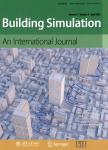A novel deep generative modeling-based data augmentation strategy for improving short-term building energy predictions
作者机构:Key Laboratory for Resilient Infrastructures of Coastal Cities(Shenzhen University)Ministry of EducationChina Sino-Australia Joint Research Center in BIM and Smart ConstructionShenzhen UniversityShenzhenChina Building Technology&Urban Systems DivisionLawrence Berkeley National LaboratoryUSA
出 版 物:《Building Simulation》 (建筑模拟(英文))
年 卷 期:2022年第15卷第2期
页 面:197-211页
核心收录:
学科分类:08[工学] 0807[工学-动力工程及工程热物理] 081304[工学-建筑技术科学] 0813[工学-建筑学] 0814[工学-土木工程]
基 金:support of this research by the National Natural Science Foundation of China(No.51908365,No.71772125) the Philosophical and Social Science Program of Guangdong Province,China(GD18YGL07)
主 题:building energy predictions data augmentation data-driven models generative modeling variational autoencoders
摘 要:Short-term building energy predictions serve as one of the fundamental tasks in building operation *** large numbers of studies have explored the value of various supervised machine learning techniques in energy predictions,few studies have addressed the potential data shortage problem in developing data-driven *** promising solution is data augmentation,which aims to enrich existing building data resources for reliable predictive *** study proposes a deep generative modeling-based data augmentation strategy for improving short-term building energy *** types of conditional variational autoencoders have been designed for synthetic energy data generation using fully connected and one-dimensional convolutional layers *** experiments have been designed to evaluate the value of data augmentation using actual measurements from 52 *** results indicate that conditional variational autoencoders are capable of generating high-quality synthetic data samples,which in turns helps to enhance the accuracy in short-term building energy *** average performance enhancement ratios in terms of CV-RMSE range between 12%and 18%.Practical guidelines have been obtained to ensure the validity and quality of synthetic building energy *** research outcomes are valuable for enhancing the robustness and reliability of data-driven models for smart building operation management.



